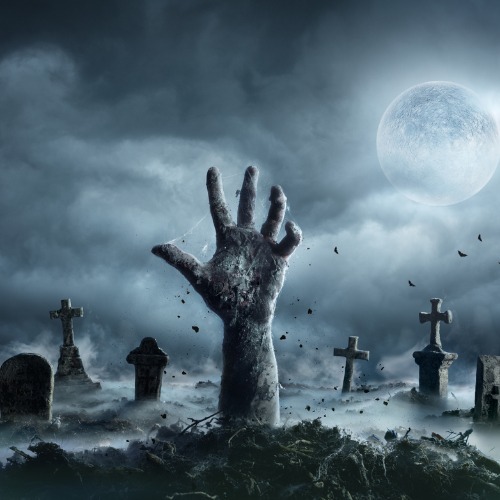Smithian Sympathy and Horrible Surprises
August 18, 2022

Adam Smith well understood the power of surprise - a strong enough surprise could cause sudden death! Jon Murphy thinks about what that says about people who love a good horror.

Adam Smith well understood the power of surprise - a strong enough surprise could cause sudden death! Jon Murphy thinks about what that says about people who love a good horror.
What attracts a person to the genre of horror? Many people love it and are lured by the mysterious. Adam Smith suggests an answer in an unlikely work: The History of Astronomy (Astronomy). In Astronomy, Smith proposes to discuss three sentiments and how they contribute to our understanding of the world: Surprise, Wonder, and Admiration. It is within Surprise that I see Smith’s explanation of horror. Smith writes:
“When an object of any kind, which has been for some time expected and foreseen, presents itself, whatever be the emotion which it is by nature fitted to excite, the mind must have been prepared for it, and must even in some measure have conceived it beforehand”
(Essays in Philosophical Subjects, pg. 34).
In other words, when we expect something, the emotions that it invokes tend to be muted. However, when something is unexpected, the emotions are quite different:
“But the contrary of all this [muted emotions from an expected object] happens when the object is unexpected; the passion is then poured in all at once upon the heart, which is thrown, if it is a strong passion, into the most violent and convulsive emotions” (pg. 34).
Smith goes on to say
“such [strong emotions] sometimes cause immediate death; sometimes, by the suddenness of the extacy, so entirely disjoint from the whole frame of the imagination, that it never after returns to its former tone and composure, but falls either into a frenzy or habitual lunacy; and such as almost always occasion a momentary loss of reason, or of that attention to other things which our situation or our duty requires” (pg. 34-35).
Many plots of horror novels, especially in the gothic horror tradition of Edgar Allen Poe, H.P. Lovecraft, Mary Wollstonecraft Shelley, John Polidori, and Bram Stroker, revolve around sudden events driving characters mad. For example, in Lovecraft’s famous work “The Call of Cthulhu,” the protagonist pieces together the threat of the monster Cthulhu through “found documents.” Each of the authors of those documents describe various encounters with cultists and the power of Cthulhu. One of the documents details the exploration of R’lyeh, the home city of Cthluhu, which the author of the manuscript describes as a ”nightmare corpse-city” with “abnormal, non-Euclidian, and loathsomely redolent of spheres and dimensions apart from ours.” These strange geometries weigh on the minds of the explorers as they go insane trying to comprehend what it is they saw. The sudden shock, so abnormal from what we are used to, brought the explorers “into a frenzy or habitual lunacy.” They were the victims of a most powerful form of surprise.
Adam Smith discusses at length in the Astronomy of the power of surprise. He writes that when surprise comes upon “while the mind is in the mood most unfit for conceiving it, the Surprise is then the greatest.” The horror genre exploits that condition of surprise. Who, while walking the streets of London, expects to come across a vampire? Or, while sitting alone in one’s room, a raven to mock one’s loneliness? Thus, the characters often face great stress upon their minds.
I grew up on a steady diet of the mysterious and weird. On Cape Cod, Massachusetts, where I was born and raised, tales of ghost ships and pirate treasure abound. In the wider region, New England boasts several horror masters: Poe, Lovecraft, and Stephen King. My homelands are the fictional home to such infamous locations as Arkham, Miskatonic University, Innsmouth, and Derry. The Devil and Daniel Webster had a famous debate here. In the real world, we’ve had the witches of Salem, the ghosts of the Biltmore Hotel, and the house that was the site of The Conjuring. My undergraduate alma mater, Framingham State University, has a piano-playing ghost in one of the dorms (something I have witnessed). New England is, to borrow a line from one of my favorite TV shows, just West of Weird.
We, as spectators, sympathize with the characters. We may wish to feel the terror they feel, to imagine what it is like to, for a brief instance, see and know all that we seem to know is nothing. Horror gives us that chance, and the masters of the genre leave so much to our imaginations that we can enter into the characters more fully. In short, Horror appeals to us because it taps into a most powerful passion: surprise.
I will conclude with an unanswerable question: would Adam Smith have liked horror stories? I think he would, but I may simply be projecting my own preferences onto Smith. But I do think, even if he did not personally enjoy the genre, he would have been fascinated by the masterful use of surprise by the authors.
Blood-thirsty for more?
Amy Willis' What's Spooky About Smith?
Shanon FitzGerald's Adam Smith and the Creation of Horror in Frankenstein
Lecture by Dr. Caroline Breashears, Adam Smith and the Horror of Frankenstein
Edward J. Harpham's Frankenstein Through the Eyes of Adam Smith
Amy Willis' What's Spooky About Smith?
Shanon FitzGerald's Adam Smith and the Creation of Horror in Frankenstein
Lecture by Dr. Caroline Breashears, Adam Smith and the Horror of Frankenstein
Edward J. Harpham's Frankenstein Through the Eyes of Adam Smith